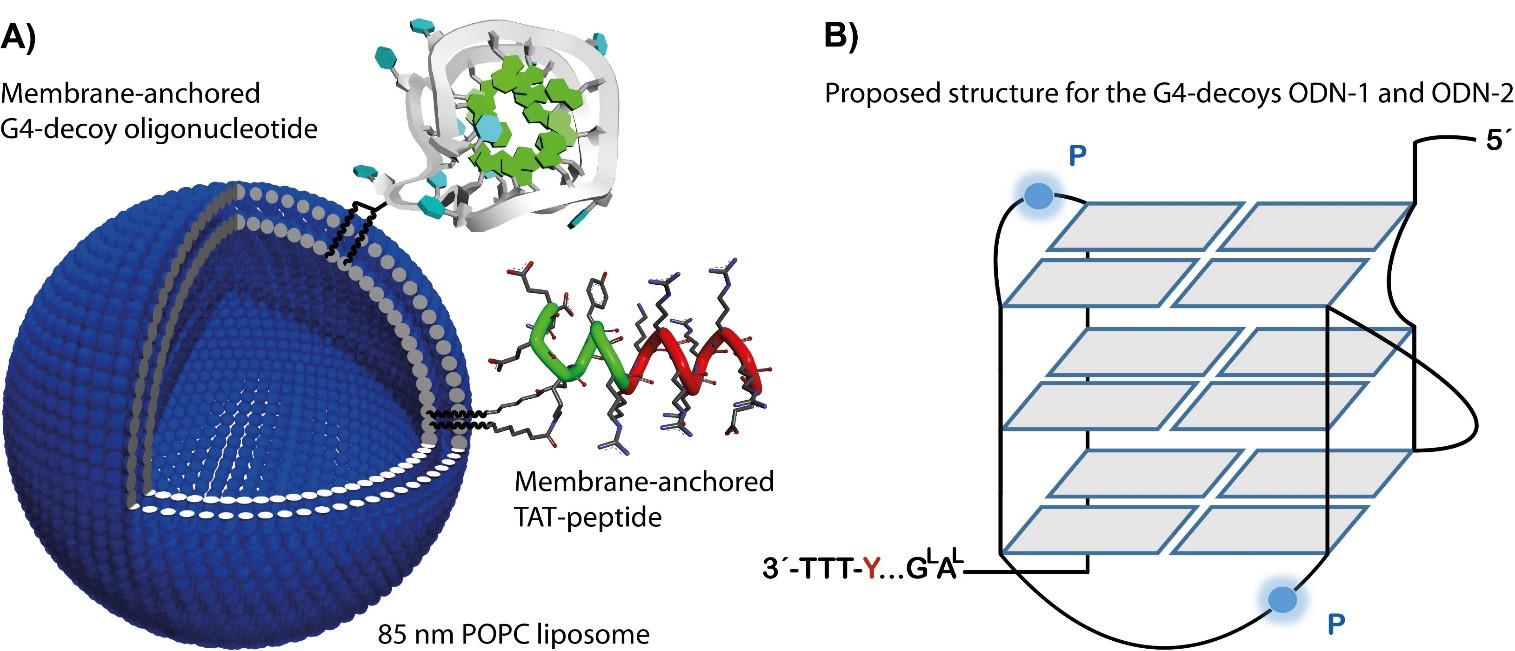Vejleder: Stefan Vogel
Forudsætninger: KE505 og KE506 skal være bestået.
Projektbeskrivelse
KRAS is mutated in >90% of pancreatic ductal adenocarcinomas (PDAC). As its inactivation leads to tumour regression, mutant KRAS is considered an attractive target for anticancer drugs. In this study we report a new delivery strategy for a G4-decoy oligonucleotide that sequesters MAZ (myc-associated zinc-finger), a transcription factor essential for KRAS transcription. Delivery is based on the use of liposomes functionalized with lipid-modified G4-decoy oligonucleotides and a lipid-modified cell penetrating TAT peptide. The potency of the strategy in pancreatic cancer cells is demonstrated by cell cytometry, confocal microscopy, clonogenic and qRT-PCR assays.

Figure 1. Schematic illustration of key components for G4-decoy ON delivery systems 85 nm sized POPC liposomes with membrane anchored G4-ON and a cell-penetrating peptide (TAT) attached (A) and the proposed structure for the G4-forming ONs with P indicating the position of quadruplex-stabilizing para-TINA (P) units (B).
Decoy G4-quadruplexes formed by G-runs 2-3-4-5 showed the strongest affinity for MAZ which activates the transcription of KRAS. A TINA-modified quadruplex (twisted intercalated nucleic acid) showed a strong bioactivity, as it suppressed KRAS, inhibited proliferation, activated apoptosis in Panc-1 cancer cells, inhibited tumour growth and increased the survival time of the mice by ~50%. To improve the delivery we used liposomes to which we anchored noncovalently the lipid modified G4-decoy oligonucleotide. The liposome-anchored G4-decoy efficiently internalize in pancreatic Panc-1 cancer cells where it reduces the metabolic activity, the clonogenicity as well as the level of KRAS transcript.
Lipid-modified G4-decoys in liposomal formulations show strong inhibition of Panc-1 cell proliferation and significant growth reduction for other cancer cell lines such as MIA PaCa-2 and BXPC-3 (not shown). Work in progress is focused on receptor targeted G4-decoys.